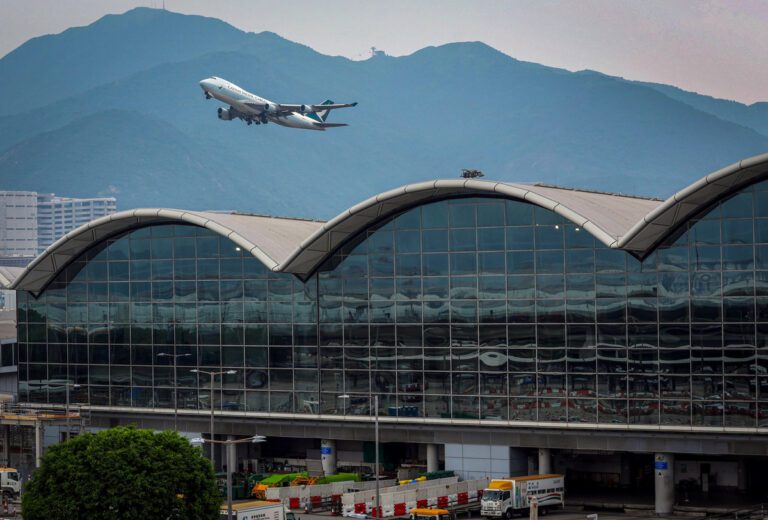🎧 Listen to This Article
HONG KONG – In a bold fiscal move, Hong Kong’s government is set to raise the air passenger departure tax by 67%, from HK$120 to HK$200, effective October 1, 2025. However, in response to growing concerns that the hike could hurt tourism, lawmakers are urging the city to introduce more exemptions for transit passengers. The push for expanded exemptions could be a crucial strategy to maintain Hong Kong’s competitive edge as a regional aviation hub.
The Hong Kong government, grappling with a significant budget deficit of HK$87.2 billion for the 2024-2025 fiscal year, has proposed increasing the air passenger departure tax. This tax hike, which will take effect in October, is aimed at generating much-needed revenue to address the deficit. However, concerns are mounting that such an increase could push travelers to seek cheaper options in nearby cities like Shenzhen, which already offers lower fees at its airports.
In addition, Hong Kong’s position as an international aviation hub is increasingly under pressure as competition from other regional airports intensifies. To balance revenue generation with maintaining its appeal to international travelers, Hong Kong is considering extending the tax exemptions for transit passengers.
Corporations, Travelers, and Public Revenue
The proposed tax increase is expected to raise approximately HK$1.6 billion annually, providing a welcome influx of funds to help address Hong Kong’s deficit. However, for corporations in the aviation and tourism sectors, the new tax could dampen demand. Airlines, especially budget carriers, may be forced to adjust their pricing structures to absorb the additional cost. In turn, passengers—particularly those traveling on a budget—could face significant price increases, with the tax impacting the overall cost of short-haul and long-haul flights.
For travelers, the new tax will make flying out of Hong Kong more expensive, especially for those on connecting or budget flights. Lawmakers are particularly concerned that the tax hike, coupled with Hong Kong’s high cost of living, could shift passenger traffic to more affordable airports in nearby cities, jeopardizing Hong Kong’s role as a premier destination for both tourists and business travelers.
Insights from Lawmakers and Industry Experts
Lawmakers have voiced strong reservations about the proposed tax increase. Perry Yiu Pak-leung, a lawmaker representing the tourism sector, called for broader exemptions. “While the proposal to exempt transit passengers is a step in the right direction, it’s far from enough. We need to expand exemptions to include all passengers, regardless of their travel mode or class, to remain competitive,” Yiu said.
Gary Zhang Xinyu, a lawmaker from New Territories North, echoed these concerns, adding that many residents were already opting to travel from Shenzhen to save on taxes. “The last thing we need is to alienate budget travelers further,” Zhang remarked. “If we continue increasing taxes, we risk losing more passengers and losing our standing as an international aviation hub.”
Economists and aviation analysts suggest that the increased tax could hurt Hong Kong’s tourism recovery, particularly in the post-pandemic era. “Hong Kong’s competitive edge lies in its connectivity. If the new tax disrupts that, it could impact the broader tourism and retail sectors,” said Lina Chan, an economist with Global Aviation Insights.
As Hong Kong prepares for the tax increase, businesses and travelers alike will be closely monitoring the government’s decision on expanding exemptions. Key considerations include whether the exemptions will apply only to certain categories of passengers or be broadened to include a larger pool of travelers. Industry groups are advocating for a more generous exemption policy, which they argue would better safeguard Hong Kong’s competitive position against regional rivals.
The next milestone will be the final policy decision in the coming months, with public consultations and legislative discussions expected to continue in the weeks leading up to the implementation date. Any changes to the tax structure could have significant ramifications not just for the aviation sector, but for Hong Kong’s broader economy.
For further details, clarification, contributions, or any concerns regarding this article, please contact us at editorial@tax.news. We value your feedback and are committed to providing accurate and timely information. Please note that our privacy policy will handle all inquiries



